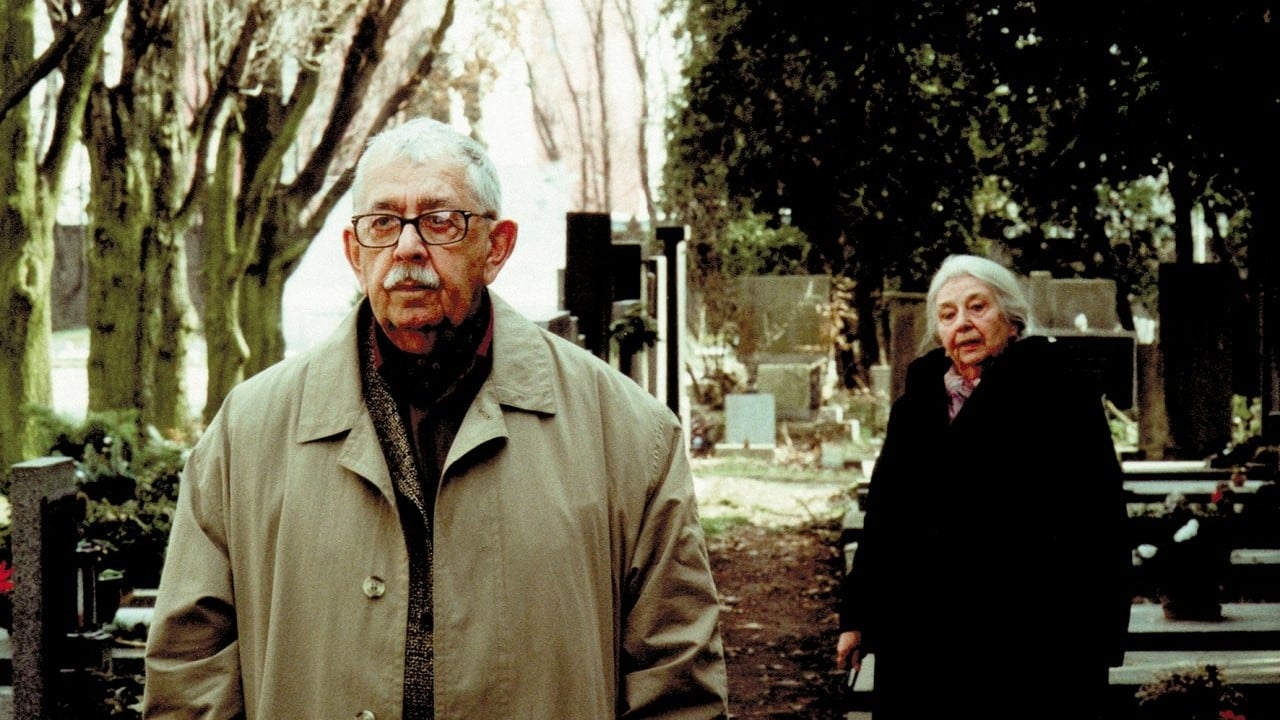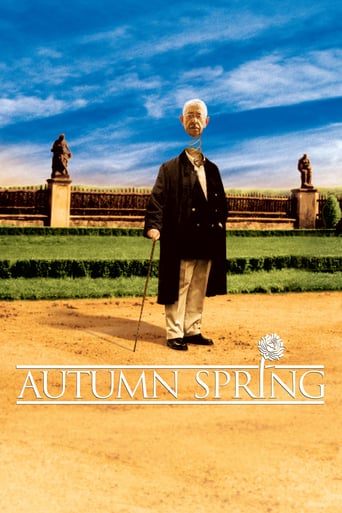


Nice effects though.
... View MoreA waste of 90 minutes of my life
... View MoreThe first must-see film of the year.
... View MoreThe movie runs out of plot and jokes well before the end of a two-hour running time, long for a light comedy.
... View MoreI am neither an avid movie fan nor an accomplished review contributor but felt compelled to relate the exuberance I felt when I first saw this film. I have repeated the experience and still remain enthralled. I really felt that it was a documentary - a real life expose rather than a dramatized film. The music is absolutely delightful and I am trying to ascertain how I might learn the title and obtain a copy - it lingers and frankly haunts me a little. The entire experience was so rewarding that I fear I will judge all other movies I and tempted to view by this standard. The hero is not really a comedian but someone who has made a judgment about his behavior - deciding that in his old age he will be himself. His character is such that he does not take life seriously and that might be interpreted as comic however that is not his intention it seems. His long-suffering wife does make an attempt to rectify what she sees as the error of his ways but, in the end, he is a hero because whilst conceding slightly, he has the courage of his convictions.
... View MoreA wonderful movie about a man who refuses to grow old. Autumn Spring revolves around Frantisek Hána, who is in Autumn of his life but mentally still lives in Spring. He loves fine dining and he still loves making pranks and he doesn't cares much for death. But he is kind hearted and generous, a good friend and still loves his wife.While Autumn Spring is mainly about living life to its fullest, it also about friendship, marriage and parent-child relationship. And it is also a very good character study.There are many good movies about people struggling with age of which Tokyo Story is my favorite. In Autumn Spring, the topic is handled in a fresh, loving and humorous manner, leaving the audience with a smile on their faces as the movie ends.
... View MoreThe title of the film seems quite appropriate given the persona of the lead character, Fanda. He's an older man living in the late autumn of his life, yet frolics about as a jubilant school boy who's just entered a spring meadow. The frailties of old age and the warning signs of death are all illusions to him. His wife supports this idea when she observes, "Fanda laughs at funerals and death." In other words, death is not something Fanda takes too seriously; he has more important things to do than worry about what already is inevitable. Life, however, and the pursuit of living life to its fullest, is the philosophy that governs Fanda's existence. He is not one to merely exist, but must live for each day and each passing moment, for tomorrow is not guaranteed. The film seems to make a strong commentary about living as though there is no tomorrow, let alone death. Too many people take life much too seriously and consequently miss out on the actual living part of life. Fanda's wife for example; she's so worried about preparing for death, not in some religiously connotative way, but in a far too practical, even lifeless way that she forgets how to smile, laugh and just have a good time. Her humanity seems to have transformed into zombie auto-pilot mode. Fanda, to the contrary, is perhaps too blithe and absent-minded for his own good. He needs a person like his wife, Emilie, to help balance him. It's as though Fanda possesses the invincible spirit of a child, like a kid trapped in an older man's body. He is introduced as the adventurous type; he pretends to be people he's not in order to get gain, squanders money, factiously lies and is always up for a good laugh. Deep-down, though, he is a kind-hearted and gentle old man who wishes to be submissive to his overly pragmatic wife. The two off-set each other quite nicely, though neither one of them truly appreciates the binary quality of their relationship until they metaphorically chance upon death: meaning, their divorce. It is during this courtroom scene that Fanda realizes the reality of death and what it means if he is separated from his only love. His wife emotionally recalls all of his flaws, yet is tenderly drawn to continue to love him despite his crazy behavior. In this moment of her forgiving him, Fanda realizes his selfish behavior of driving his wife bonkers and makes an internal commitment to make her happy. Ironically, though, after making this commitment he becomes what his wife later calls, "a living corpse." The life-blood within him drains away as he becomes more like hera zombie going through day-to-day motions. He doesn't seem to live anymore, but exist. For example, he gives up his zany pranks, doesn't squander money, quits smoking on account of his wife (not his health), and overall, just acquiesces to whatever she wants of him. Succinctly put, he changes on account of wanting to make her happy. Thus, the binary quality of their relationship begins to slowly vanish. Realizing that her husband is not who he used to be, there is a part of Emilie that misses the old Fanda. She misses her husband's aloofness and the fights they used to have, because it was in those moments that they were truly living, not just simply existing. I believe the filmmakers were trying to get across a specific message here; that true and loving relationships will not always be easy or convenient, but often times will take sacrifice and endurance to wade through the seemingly bad times. The possibility of death at any moment is what reminds people to live for every moment. Life is often taken for granted, but when threatened with deathbe it literal or figurativepeople awake from their ungrateful slumbers and are aroused to start living life to its fullest. It's as though they are scared that they'll never live again, so they better make the most of it while they have it. Fanda and Emilie had been married 44 years with fights along the way, but it wasn't till they were both threatened with the possibility of death-like-separation that they began to show their true colors. As the old maxim goes, "Love knows not its own depth until the hour of separation." They both begin to see what matters most in life and that is the people they meet along the way. More importantly, the intimate relationships they make with their significant others.
... View MoreUp front, if you're tired, the first hour could be slow. The set up of the story has a natural leisurely pace, unhurried - giving us time to appreciate the kind of everyday life and situations the main characters are in. Once you arrived at the climatic segment of the storyline, the turn of events will keep you hooked: how will things turn out, what will happen to our precious Fanda (portrayed to utter quiet perfection by the veteran Czech actor Vlastimil Brodský), how will his wife (wonderfully played by Stella Zázvorková) treat him, what happens to Fanda's dear friend Ed (played by Stanislav Zindulka - a matching sidekick to Brodský), and Jára the son with selfish hidden agenda, blind to the kindness of his parents (sigh!) Vladimír Michálek sensibly directed the film with sprinkles of humor, preserving the insightful script by Jirí Hubac. Thanks to clear subtitling, I was able to notice for every 'complaining' phrase Fanda's wife utters, there's a hint of 'caringness' showing/buried in between the lines - and so did the judicious lady judge observed. Fanda is '76 going on 80' and the affection of their enduring (endearing) marriage manifests even in their bantering arguments. His playfulness can be infectious.This is 'Growing Old Together 101' for (at least) the beyond fifties, and lessons learned to sons and daughters not to take parents for granted. One may need to rethink if assuming 'home for the aged' is a means to an end, so to speak. The film is gently shouting to us to live life to the fullest while we can. (Hint: there's joy in staying on and watch the end credits roll.)We're fortunate to be able to see an occasional Czech film. The Sverák ("Kolya") father & son's 2001 "Dark Blue World" was revealing with pathos. It's good to take it slow now and then and appreciate a foreign gem - its subtitles, scenery, melodic score and an engaging human story with elegant performances. "Autumn Spring" (aka Babí Léto) is available on DVD. Enjoy!
... View More